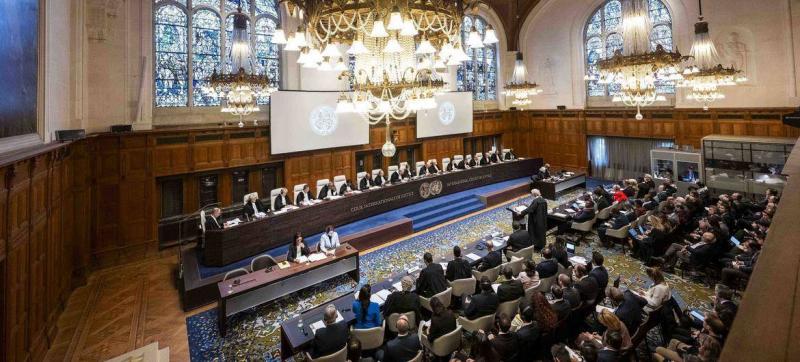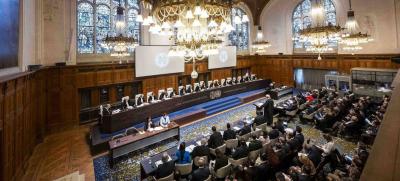The International Court of Justice (ICJ) is holding hearings this week on a lawsuit filed by South Africa, accusing Israel of committing genocide during its war in the Gaza Strip and calling for an urgent halt to the Israeli attack on the city of Rafah.
**What is the International Court of Justice?**
The International Court of Justice, also known as the World Court, is the highest legal body of the United Nations, established in 1945 to adjudicate disputes between states. It should not be confused with the International Criminal Court, which is also based in The Hague and addresses war crimes allegations against individuals. The ICJ, composed of 15 judges (with an additional judge appointed by Israel for this case due to the presence of a South African judge), handles boundary disputes and cases brought by states accusing others of violating obligations under UN treaties. Both South Africa and Israel signed the 1948 Convention on the Prevention and Punishment of the Crime of Genocide, which grants the ICJ jurisdiction to settle disputes under the treaty. While the case revolves around Palestinian territories, the Palestinians do not have an official role in the proceedings.
The Genocide Convention obliges all signatory states not only to refrain from committing genocide but also to prevent and punish it. The treaty defines genocide as "acts committed with intent to destroy, in whole or in part, a national, ethnic, racial, or religious group."
**What is South Africa's Case?**
In its initial filing submitted three months after the war began, consisting of 84 pages, South Africa argues that Israel's actions against Palestinians in Gaza, causing severe physical and psychological harm and creating living conditions aimed at "physically destroying them," constitute genocide. During hearings held in January, South Africa focused on Israel's failure to provide basic food, water, medicine, fuel, shelter, and other humanitarian aid to Gaza amid the ongoing conflict with Hamas. The report also highlighted the ongoing bombing campaign, which has resulted in over 35,000 deaths according to Gaza's health officials.
**What is Israel's Response?**
Israeli Prime Minister Benjamin Netanyahu rejected the genocide allegations, calling them abhorrent. Israel asserts that it is doing everything possible to protect Palestinian civilians in Gaza and accuses Hamas of using Palestinians as human shields, a claim that Hamas denies. Israel argues that its right to self-defense is justified following the Hamas attack on October 7, which resulted in 1,200 deaths and 253 hostages according to Israeli statistics.
**What Decisions Has the ICJ Made So Far in the Case?**
After the first round of hearings on emergency measures in January, the court found it reasonable to conclude that Israel had violated some rights of Palestinians in Gaza under the Genocide Convention. The judges ordered Israel to refrain from any acts that could fall under the Genocide Convention and to ensure that its forces do not commit genocide against Palestinians. Such acts include killing members of a group, causing serious physical or mental harm, and deliberately inflicting living conditions intended to destroy the group wholly or partially. The judges also ordered Israel to take steps to improve the humanitarian situation in Gaza. In March, the court announced additional emergency measures, mandating Israel to take all necessary and effective measures to ensure the delivery of essential food supplies to Palestinians in Gaza.
**Why Are New Hearings Being Held?**
On May 10, the court announced that South Africa had requested additional emergency measures concerning the Israeli attack on the city of Rafah in southern Gaza, where over one million Palestinians have been displaced. South Africa seeks a court order to halt military operations in Rafah and to enable UN officials, humanitarian aid organizations, journalists, and investigators to access Gaza without obstacles. In the scheduled hearings on Thursday and Friday, both South Africa and Israel will be given two hours to present their cases regarding the new emergency measures request. The sessions will not include witness testimony or interrogations and are expected to be limited to legal arguments presented by officials and lawyers.
South Africa has requested the court to issue emergency orders to protect Palestinians in Gaza as a preliminary step in the broader genocide case, which is expected to take several years to complete. Emergency measures, officially known as provisional measures, are types of restraining orders intended to prevent further escalation of the conflict while the court considers the case in its entirety. A decision on the additional measures is expected in the coming weeks. While the ICJ’s judgments are final and cannot be appealed, it does not have any enforcement power, and a ruling against Israel could damage its international reputation and set a legal precedent.




